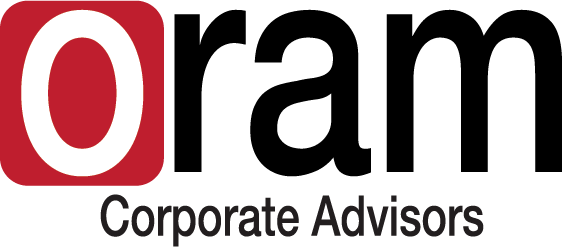One of the most critical components of the modern office environment for a healthy, scalable business infrastructure is security. It is the cornerstone of your IT for it protects the other components that your company needs to keep thriving and surviving in the modern marketplace. Today’s business security entails much more than just an anti-virus program and requires some pre-planning as well as a regular investment of time.
This blog covers the most important things every business should know about security. Additionally, it includes what business leaders should consider to best protect their organization, data, and clientele. As you will see, having the right security in place can make the difference between growing your business and shutting its doors permanently.
Secured Access
Every business should have secured access in place for both internal and external users on its network. As a modern company, both internal and external users will be accessing your data whether its email or highly-sensitive information not meant for prying eyes. This is important because data falling into the wrong hands can cost your business its reputation, revenue, and even its livelihood.
According to the 2018 Data Breach Investigations Report by Verizon, 73 percent of breaches were perpetrated by outsiders. This means your business data needs to be protected as much as possible and that external access to your network should be limited and monitored at all times. Hackers are always looking for a way to infiltrate networks. Phishing, ransomware, and malware were among the top means used by nefarious outsiders to access business networks in 2018. Of those breaches studied, 90 percent were motivated by monetary gain or strategic advantage (i.e. business espionage).
While you may believe that your business is too small for anyone to care about hacking its data, think again. A report by USA Today shows 61 percent of cyberattacks are aimed at small and medium-sized businesses. The same piece reported that a whopping 60 percent of small businesses close their doors for good within six months of an attack so it’s clear why security is so imperative to business survival in our modern society.
Though most breaches occur due to external sources, insiders can be just as dangerous to your business. Whether due to simple user error or something more insidious such as a disgruntled employee or cyber espionage, the aforementioned Verizon report concluded that 28 percent of breaches involved internal actors. Of those breaches, 12 percent involved privilege misuse. That’s why we always recommend implementing the practice of least privilege. This means allowing access to data only to those who require it to fulfil their job duties.
Email Security
Email is the bread and butter of communication for most modern offices. The use of email for both internal and external communications is a necessity for today’s businesses so securing it effectively is imperative. The issue is that it is also a major point of entry for many attacks.
A blog by CSO from IDG shows that 92 percent of malware is delivered by email. In addition, the blog stated that the average ransomware attack (which often occurs via email) costs a company $5 million. The same blog also stated that phishing attacks is one of the most common methods of email malware infection.
There is email and network scanning software available to help protect your business. At ORAM Corporate Advisors, we recommend Mimecast for email protection. It is a terrific solution to help organizations prevent email-borne ransomware as well as protect against the associated downtime and data loss such attacks can cause. ORAM recommends Mimecast because it “safeguards employee communication and reduces risk with targeted protection, data leak prevention, and enforced security controls.”
Mimecast, which I mentioned above for email and network scanning, is also an excellent solution for data loss prevention. Its data loss prevention solution scans all emails and file attachments and identifies potential leaks using flexible polices based on keywords, file hashes, pattern matching, and dictionaries.
Another piece of modern technology you’ll want to have in place is multi-factor authentication. Multi-factor authentication is a security system that requires more than one method of authentication to verify a user’s identity. This can range from requiring passwords that must periodically be changed by legitimate users to requiring a one-time PIN provided via smartphone for access. It adds an extra step for employees to access your network but it will help ensure your business’ data security.
In addition to software, we also recommend that employee training become a regular event. Every business should offer employee training during the onboarding process and at regular intervals throughout the year (every six months) to every employee. They should be trained not to click on email attachments or to follow links in emails from unknown or untrusted sources. Employees should also be taught to verify emails with links and attachments with a trusted source before opening them if something comes into their email that they weren’t expecting. While this training can take some time, it can prevent a costly breach later on.
Manage Your Network
While securing access to your network is important, managing your network is even more imperative to keep business operations running smoothly. Your network houses your most critical data while supporting the daily workflow and processes of your business. That means maximizing uptime, optimizing network capacity and utilization, and ensuring its protection.
There are a great deal of pieces that comprise your network and all of them need to be addressed on an ongoing, regular basis. Start with a network technology assessment and auditing. This will tell you where your network is in terms of optimization and data security. By assessing where your network is now and taking a full audit, you will be able to tell where your strengths and weaknesses are to tweak it to work at full capacity for your business needs.
In addition to regular assessments and audits of your
network, you will need to plan ahead for storage, disaster recovery, business
continuity, and more. Here are some of the things that go into managing a
business network:
- Email Continuity
- IT Asset Tracking and Reporting
- High Availability Services
- Cloud Solutions
- Network Design, Implementation, and Support
- Data Assessment, Analysis and Recovery
- Security and Monitoring Services
- Workflow Assessment and Optimization
Up-To-Date Security
Your business should also have up-to-date technology security in place. You will want to ensure that your company has installed intrusion prevention software on all of its data networks to keep hackers from getting their hands on your information. You can check to ensure you have such software in place during the audit process.
The intrusion prevention system we use at ORAM is Cisco hardware that scans on a network level. It scans everything going into and out of your network to ensure that your network traffic is safe. This could catch someone maliciously trying to access your internal network, bad email attachments, and other threats.
In addition, you will want to put together policies for your employees that protect your business. Ensure you have a solid computer use and data loss prevention policy in place so employees know exactly when and for what purposes they can use their company devices. Make it clear what sites they should not visit and what the repercussions are for visiting non-work related sites on business devices.
You’ll also want to have a password policy in place so employees are not using the same passwords for multiple accounts or old passwords that could leave them at risk of being hacked. Passwords also need to be strong so encourage your employees to develop passwords that use letters (both lowercase and capital), numerals, and special characters. There is even software available to prompt your employees to change or update their passwords over time. You may even offer your employees a password manager so they can easily recall their passwords.
Many enterprise businesses are also moving to the cloud. Not only does this allow for greater flexibility for your employees, but it can offer greater data security. When you save both to your local network and the cloud, you have your data backed up. This is ideal in the event of a disaster and will get your business up and running again with less downtime or the worry that valuable information can’t be recovered.
Don’t Forget Your Physical Security
Remember that all data is not digital. Whether you have data files stored in locked filing cabinets or your HR employees are printing personally identifiable information (PII) during tax season, the physical security of your business is just as important as its digital security. You don’t want someone walking out with printed files or sifting through your garbage to steal information.
ORAM recommends that all businesses have a clean desk policy. This means requiring that all employees keep their desk clear of papers, notes, and other information that could lead to a breach or loss of information if it were to fall into the wrong hands. When they are not as their desk, employees should have a clean desk since everything should be put away, hopefully under lock and key.
Businesses should also limit physical access to certain areas such as file storage areas, server rooms, and other places where information is stored. If an employee doesn’t require that access to do their job on a regular basis, they shouldn’t have access. Such areas should be locked with limited persons possessing keys for access. We also recommend adding video cameras at data rich entry points to protect against a physical breach. This small addition will let administrators know who accessed the area(s) and when they did so which will help in an investigation.
Finally, you’ll want to ensure that all data is properly disposed of. Shred all hard copies before tossing paper information and consider hiring a disposal company that handles this type of waste. Don’t leave such waste out on the curb for anyone to take. Ensure the company will come in to gather paper for disposal. In addition, make sure that valuable paper data isn’t thrown into the recycle bin but is shredded before being thrown out. When it comes to cyber espionage, dumpster diving isn’t unheard of.
Have a Plan
Every business should also have a written information security plan (WISP) in place. It should include everything from regular IT audits to employee training. There are many mistakes that businesses make when it comes to backup that are completely preventable. Your WISP will outline effective administrative, technical, and physical safeguards specific to your organization to help prevent such mistakes. It will also define security measures for your business, protect against anticipated security threats, and unauthorized access. The WISP for your business will put safeguards into place to protect your data. It will also help you and your employees know exactly what to do and who to contact if disaster strikes.
If you need help with securing your modern office or want more information about building stronger security for your business, contact ORAM today at (617) 933-5060. Our experts are always here to assist you in bettering your business and data security.










